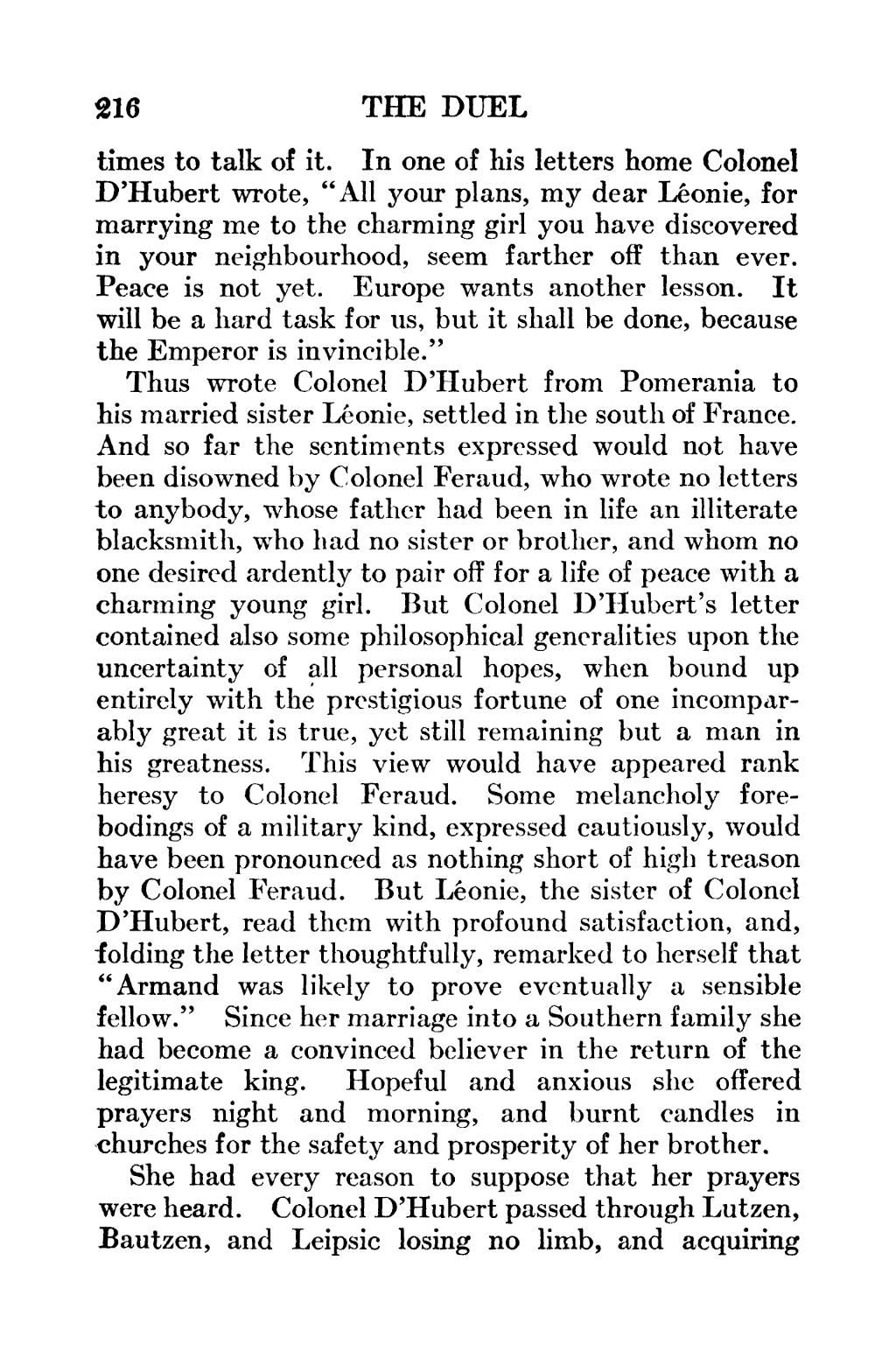times to talk of it. In one of his letters home Colonel D'Hubert wrote, "All your plans, my dear Léonie, for marrying me to the charming girl you have discovered in your neighbourhood, seem farther off than ever. Peace is not yet. Europe wants another lesson. It will be a hard task for us, but it shall be done, because the Emperor is invincible."
Thus wrote Colonel D'Hubert from Pomerania to his married sister Léonie, settled in the south of France. And so far the sentiments expressed would not have been disowned by Colonel Feraud, who wrote no letters to anybody, whose father had been in life an illiterate blacksmith, who had no sister or brother, and whom no one desired ardently to pair off for a life of peace with a charming young girl. But Colonel D'Hubert's letter contained also some philosophical generalities upon the uncertainty of all personal hopes, when bound up entirely with the prestigious fortune of one incomparably great it is true, yet still remaining but a man in his greatness. This view would have appeared rank heresy to Colonel Feraud. Some melancholy forebodings of a military kind, expressed cautiously, would have been pronounced as nothing short of high treason by Colonel Feraud. But Léonie, the sister of Colonel D'Hubert, read them with profound satisfaction, and, folding the letter thoughtfully, remarked to herself that "Armand was likely to prove eventually a sensible fellow." Since her marriage into a Southern family she had become a convinced believer in the return of the legitimate king. Hopeful and anxious she offered prayers night and morning, and burnt candles in churches for the safety and prosperity of her brother.
She had every reason to suppose that her prayers were heard. Colonel D'Hubert passed through Lutzen, Bautzen, and Leipsic losing no limb, and acquiring
